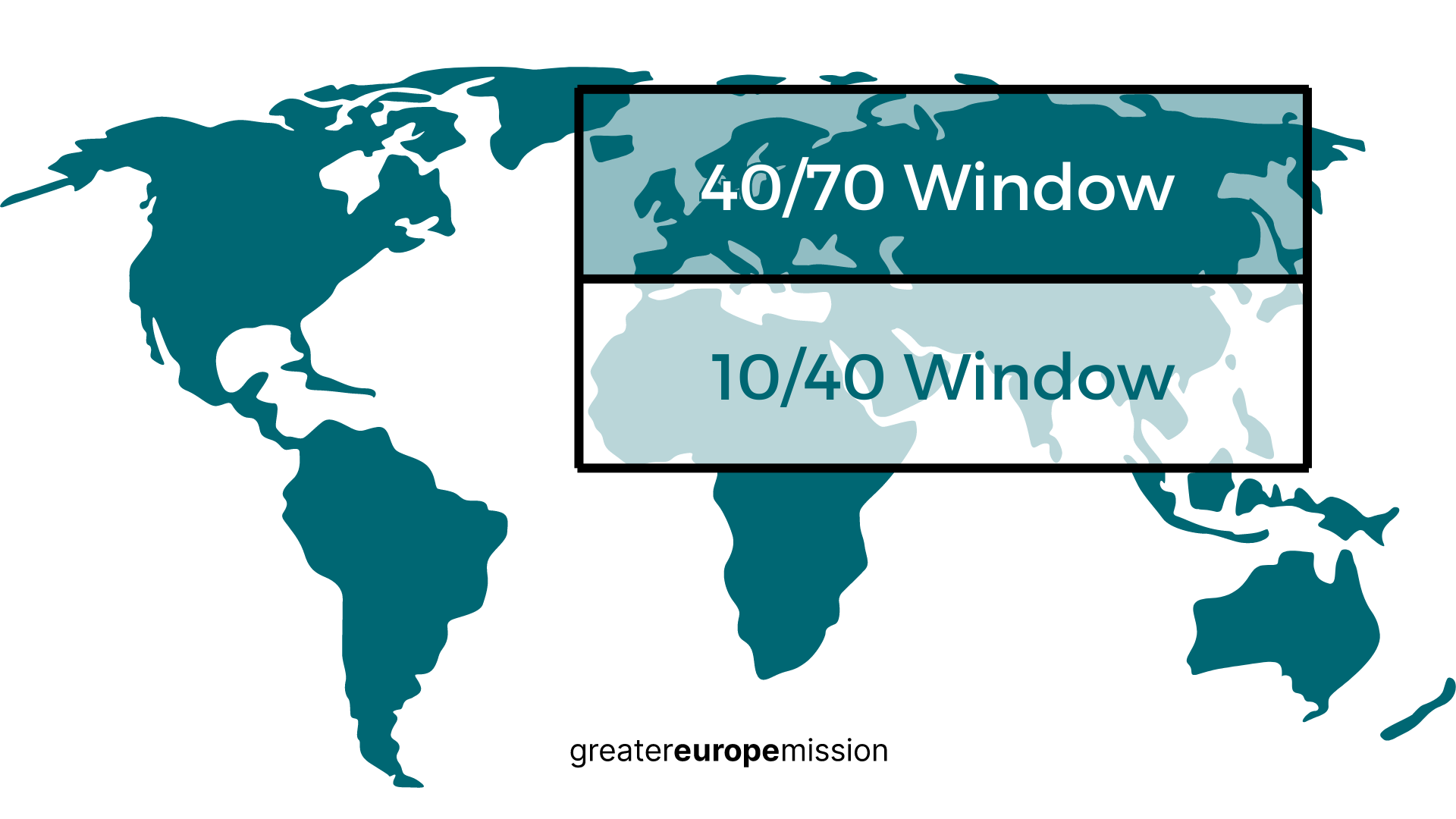Walking down the local streets of Rome or London—or most streets across Europe for that matter—you’re likely to notice the cultural diversity in the people. The truth is, Europe has become a melting pot of cultures, its inhabitants now unmistakenly diverse. From a mission’s perspective, seeing the nations of the world becoming increasingly accessible—many of which coming right to our doorsteps—is inspiring.
For the past few decades, the focus of many mission organizations has been, and still is, the 10/40 window—a rectangular, geographical area spanning over north Africa through to Asia—10°N to 40°N latitude—with the intent of reaching the world’s most unreached populations. With ongoing refugee and immigrant movements taking place, though, the unreached are trickling into other parts of the world. Greater Europe Mission is well suited to take on the unique opportunity of reaching those who have left their 10/40 window homes for a new start in Europe.
Reaching Beyond the 10/40 Window
The 40/70 window—which includes Europe—covers the area above the 10/40 window. If we take into consideration where most refugees are fleeing from—mainly countries in the 10/40 window—and where Europe is situated, it should come as no surprise that it has welcomed more refugees than any other continent. By the end of 2023, Europe hosted over 30% of the world’s refugees; partner this number with other migrants—European-born or not—and this equates to millions of new inhabitants within the countries of Europe.

As refugees vulnerably relocate and build new lives within European countries—carrying with them their religious beliefs, their strongholds, and their potential lack of knowledge of Jesus—they are widening the 10/40 window, drawing a greater need for prayer and additional workers to Europe.
New inhabitants aren’t the only reason to widen our focus area of ministry, though. Did you know that of all the continents across the world, Europe has the least number of evangelical Christians? Despite Europe’s deep roots in Christianity, it has since become labelled “post-Christian” in recent decades. Skepticism and secularism have polluted society and the true Christian faith, and most Europeans live for worldly pleasures rather than for their Creator.
Many of its inhabitants—especially the older generations—continue to claim Christianity as their religion, though mostly due to the cultural tradition it has become. They won’t deny having visited a church or hearing about God in some capacity, but the number that have laid down their old selves for a new identity in Christ, is incredibly, and sadly, low. There is much need for more prayer and workers in the 40/70 window.
Latin America has revival fires burning brightly. Asia is experiencing the greatest evangelistic harvest in the world. Africa south of the Sahara is now majority Christian. Revival reports are coming from virtually every part of the world, except from the 40/70 Window.”
Mell Winger – from mycharisma.com
Reclaiming Christ for Europe
There is potential to draw Europeans back into meaningful relationships with Jesus, though. With many of their Christian-based holidays celebrated, and often taken seriously—Easter or Christmas for example—just imagine the impact that could further be made when global workers are in place to explain the redemptive power of a living God to those who are already hoping for one.
There is much to be done in the 40/70 window. There are new inhabitants from other countries making Europe their home, and there are Europeans who have stepped away from the church and their faith, making way for the influences of the world to replace what only God can fill. The continent with the least number of evangelical believers needs to be included in our focus area of ministry; we need to expand the 10/40 window to include the lost souls in Europe.
Do you feel compelled to share the Gospel within the 40/70 window? There’s always a need for more workers! Contact us today to find out how you can be involved; or become a prayer warrior and pray for the hearts of the European people to soften and accept the Truth. Let’s help bring the freedom found only in Jesus back to Europe!





